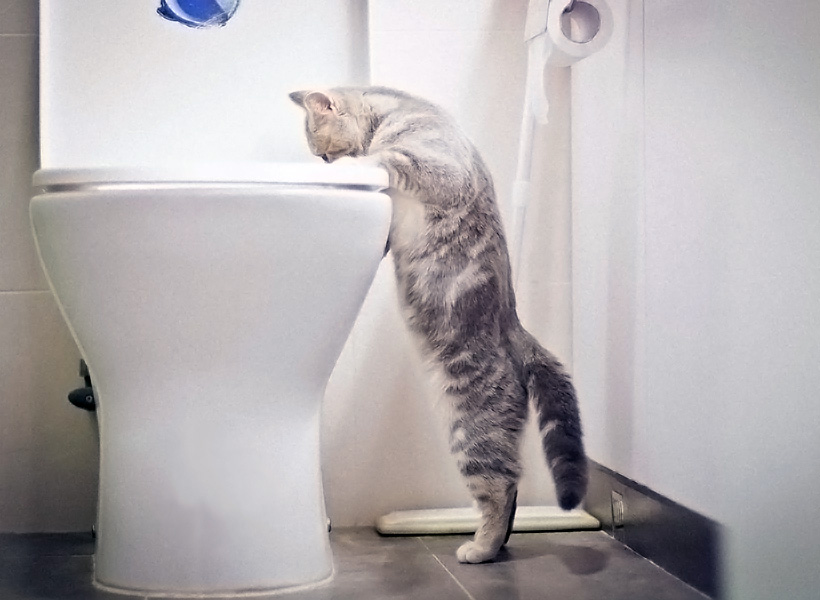They are making several good points on Can You Flush Cat Poo or Litter Down the Toilet? in general in the content further down.
Intro
As feline proprietors, it's necessary to bear in mind how we get rid of our feline friends' waste. While it might seem convenient to purge feline poop down the commode, this technique can have harmful effects for both the environment and human health and wellness.
Ecological Impact
Purging cat poop introduces damaging pathogens and parasites right into the water, positioning a substantial danger to marine communities. These contaminants can negatively affect aquatic life and concession water quality.
Wellness Risks
In addition to environmental worries, flushing cat waste can likewise present wellness dangers to people. Cat feces might include Toxoplasma gondii, a parasite that can create toxoplasmosis-- a possibly serious health problem, particularly for expectant women and individuals with weakened immune systems.
Alternatives to Flushing
The good news is, there are more secure and much more responsible ways to take care of cat poop. Take into consideration the adhering to alternatives:
1. Scoop and Dispose in Trash
One of the most usual method of disposing of pet cat poop is to scoop it into a biodegradable bag and toss it in the garbage. Be sure to use a committed litter scoop and throw away the waste promptly.
2. Use Biodegradable Litter
Go with biodegradable cat clutter made from products such as corn or wheat. These clutters are eco-friendly and can be safely dealt with in the garbage.
3. Hide in the Yard
If you have a backyard, consider burying cat waste in a designated location away from veggie gardens and water sources. Be sure to dig deep enough to prevent contamination of groundwater.
4. Set Up a Pet Waste Disposal System
Buy an animal garbage disposal system particularly designed for cat waste. These systems utilize enzymes to break down the waste, decreasing odor and ecological influence.
Final thought
Accountable pet ownership prolongs beyond giving food and sanctuary-- it likewise includes appropriate waste management. By avoiding flushing cat poop down the toilet and choosing alternate disposal approaches, we can reduce our environmental impact and protect human health and wellness.
Why Can’t I Flush Cat Poop?
It Spreads a Parasite
Cats are frequently infected with a parasite called toxoplasma gondii. The parasite causes an infection called toxoplasmosis. It is usually harmless to cats. The parasite only uses cat poop as a host for its eggs. Otherwise, the cat’s immune system usually keeps the infection at low enough levels to maintain its own health. But it does not stop the develop of eggs. These eggs are tiny and surprisingly tough. They may survive for a year before they begin to grow. But that’s the problem.
Our wastewater system is not designed to deal with toxoplasmosis eggs. Instead, most eggs will flush from your toilet into sewers and wastewater management plants. After the sewage is treated for many other harmful things in it, it is typically released into local rivers, lakes, or oceans. Here, the toxoplasmosis eggs can find new hosts, including starfish, crabs, otters, and many other wildlife. For many, this is a significant risk to their health. Toxoplasmosis can also end up infecting water sources that are important for agriculture, which means our deer, pigs, and sheep can get infected too.
Is There Risk to Humans?
There can be a risk to human life from flushing cat poop down the toilet. If you do so, the parasites from your cat’s poop can end up in shellfish, game animals, or livestock. If this meat is then served raw or undercooked, the people who eat it can get sick.
In fact, according to the CDC, 40 million people in the United States are infected with toxoplasma gondii. They get it from exposure to infected seafood, or from some kind of cat poop contamination, like drinking from a stream that is contaminated or touching anything that has come into contact with cat poop. That includes just cleaning a cat litter box.
Most people who get infected with these parasites will not develop any symptoms. However, for pregnant women or for those with compromised immune systems, the parasite can cause severe health problems.
How to Handle Cat Poop
The best way to handle cat poop is actually to clean the box more often. The eggs that the parasite sheds will not become active until one to five days after the cat poops. That means that if you clean daily, you’re much less likely to come into direct contact with infectious eggs.
That said, always dispose of cat poop in the garbage and not down the toilet. Wash your hands before and after you clean the litter box, and bring the bag of poop right outside to your garbage bins.
https://trenchlesssolutionsusa.com/why-cant-i-flush-cat-poop/

I was shown that write-up on How to Dispose of Cat Poop and Litter Without Plastic Bags through someone on a different site. Enjoyed reading our content? Please share it. Help other people find it. Thank you so much for going through it.
Schedule Today